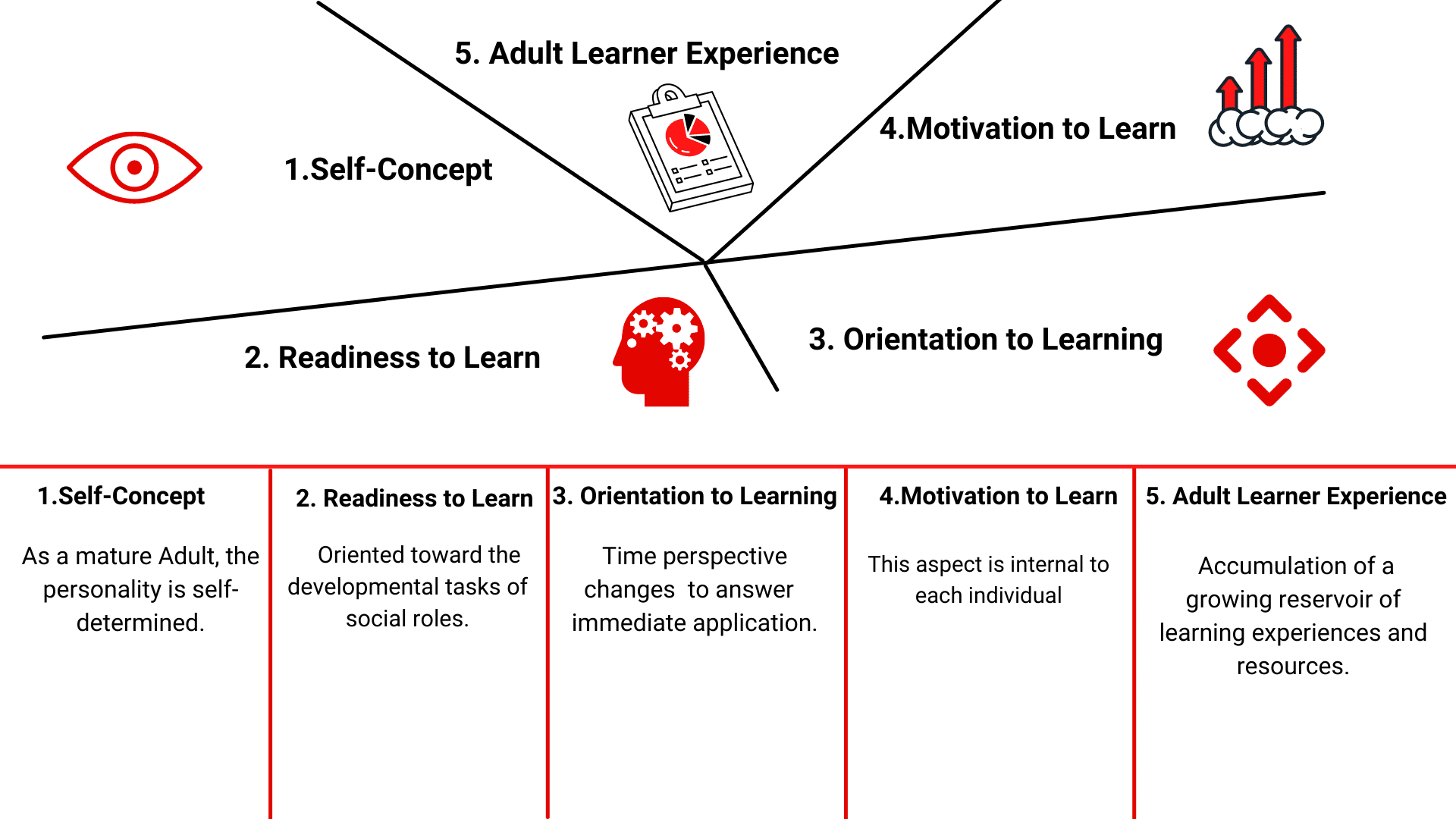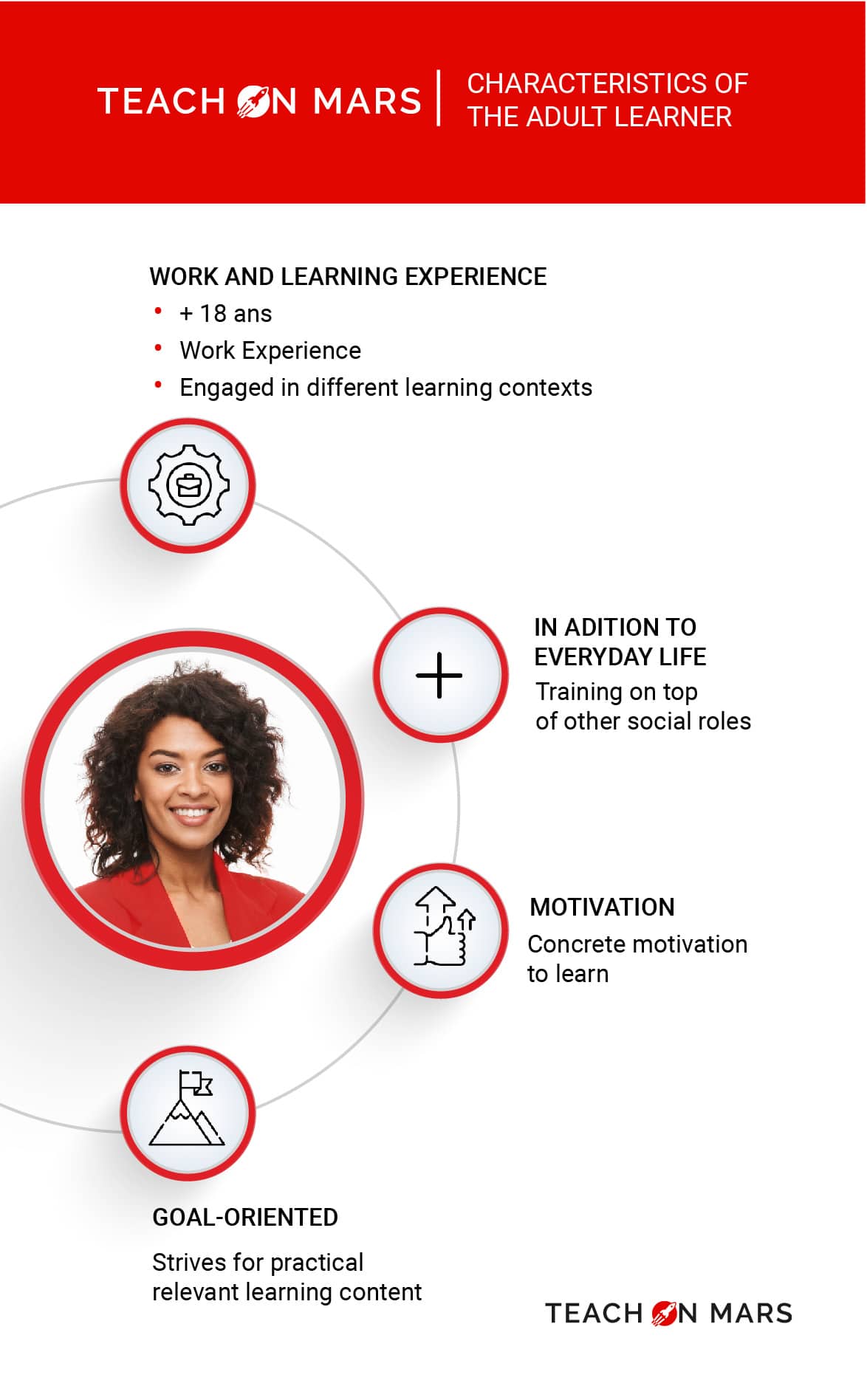What exactly are adult learners? Our learning experience experts made some research on this topic to help you out in engaging the audience. In this blog article, we summarize the findings and define Adult learners needs that will help you for your future engagement with the audience. By the end of this article, we will also share Teach on Mars activities with you that will facilitate the preparation of your training formats.
The adult learner
If we try to answer the question of what an adult learner is, we cannot avoid the definition of Malcom Knowles, who published a characterization of adult learners in the 1980s.
Back then, he distinguished the characteristics of adult learners from those of other learners groups. He even supported renaming the field of Adult Education into Andragogy*, in order to maintain a good distinction from Pedagogy.
But Knowles saw the differences between adult and other learners as not just in the different names Pedagogy and Andragogy. He defined a total of five attributes that distinguish adult learners from other learners.
- Self-concept
- Learning experience
- Readiness to Learn
- Orientation to Learning
- Motivation to Learn
Check out the visualization in order to take a more precise look at Knowles’ five assumptions!

In other words, we can define the Adult learner as follows:

But why is it even useful to define attributes of Adult learners in this context?
It’s simple: if we know which internal and external factors influence adult learners during their learning process, it is possible to better respond to the needs derived from these factors.
Based on the literature research and the assumptions of Malcom Knowles, we have derived the following aspects, which will support you in the preparation of your training formats.
- Formulate the Learning objectives in a clear and precise manner by for example using the Flash Game activity. The prediction of a clear outcome makes it easier for learners to get (and stay) motivated. The activity Toolbox can be used at the end of the training course in order to review the outcomes from the defined objectives.
- Give adult learners the opportunity to work on practical and outcome-oriented exercises. Due to their work-related practical relevance, they are often familiar with practical exercises and work on them more confidently. Furthermore, this allows them to apply their Best practices directly. You can use the following methodological activities to cover these needs: Exercises and Training Game
- Include the experience and the professional knowledge of the learners into the training. Therefore, you can integrate the activity Profiling at the beginning of the training course. If you decide to do the training partly live, you can as well choose to integrate the activity Brainstorming.
As a manager, you can highlight and enhance the knowledge and competencies of your learners by using operational follow-up tools (Add-On Manager and soon Add-On Coaching). This will enable you to link new knowledge with existing knowledge and will significantly improve the learning curve of your colleagues! - Offer training courses that are flexible in terms of time and location. Since adult learners are usually very busy in their daily lives, it is important to respond to these circumstances with flexibility in the training course. This is why ‘mobile first’ solutions can be a great fit in your learners’ busy agenda.
Getting to know your audience is key in the success of your training initiatives, bearing in mind the adult learning perspective will enable you to improve the performance of your training courses, both in the short and long term ! Share your thoughts !
*Andragogy can be described as the method and practice of teaching adult learners. A synonym for Andragogy is adult education (Cambridge Dictionary, 2021).

As an anthropologist and Educational Technologist, Marikje joined the Teach on Mars Team in order to contribute to the Teach on Earth missions, support the Content Team and further develop the Customer Experience from Teach on Mars’ clients.




